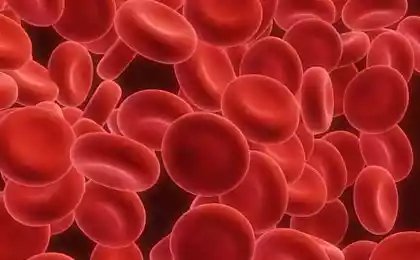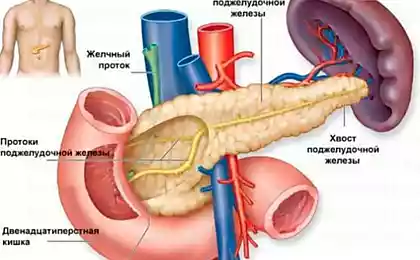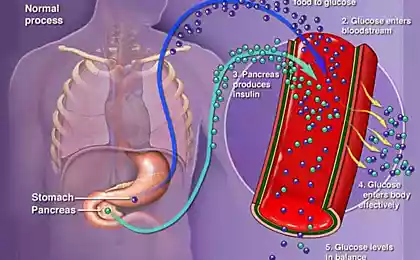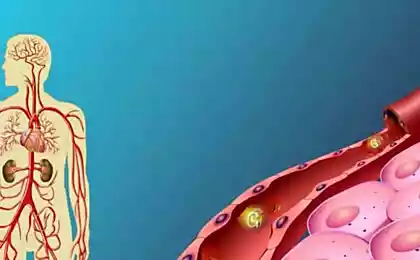244
High blood sugar levels: 13 signs

For every person who cares about their own health, it is important to learn to recognize the primary signs of high blood sugar. It is easy to identify them, and timely measures taken will avoid serious problems such as diabetes, cardiovascular disease and other complications. In this article, we will look at 13 main signs that may indicate elevated blood sugar levels.
1. Frequent urination
One of the first and most obvious signs of high blood sugar is frequent urination. The body tries to get rid of excess glucose through the urine, which leads to the need to visit the toilet more often.
“Frequent urination is often the first signal of blood sugar problems.” It is important to pay attention to this and undergo examination. — Dr. Sergey Petrov, endocrinologist.
2. Increased thirst
Following frequent urination, there is a strong thirst. The body tries to compensate for the loss of fluid caused by frequent urination.
3. Increased appetite
When blood sugar levels are high, the cells of the body do not receive enough energy, which causes a feeling of constant hunger.
4. Fatigue
Elevated sugar levels prevent cells from efficiently using glucose for energy, leading to chronic fatigue and weakness.
5. Weight loss
Despite increased appetite, many people with high blood sugar lose weight. This is due to the fact that the body begins to use fat and muscle mass for energy.
6. Blurred vision
High blood sugar levels can cause changes in the fluid balances of the eyes, leading to a temporary loss of vision clarity.
7. Slow wound healing
Elevated blood sugar affects the body’s ability to heal wounds and fight infections, which can lead to long-term wound healing and frequent infections.
8. Numbness or tingling in the hands and feet
High sugar levels can damage nerves, causing a feeling of numbness, tingling, or pain in the extremities, especially in the hands and feet.
9. Frequent infections
People with elevated blood sugar are more likely to suffer from infections, such as fungal skin infections and urinary tract infections, due to a weakened immune system.
10. Loss of taste and smell
Disturbances in the sense of taste and smell can be associated with elevated blood sugar levels, which affects the nervous system.
11. Skin changes
Elevated sugar levels can cause dry skin, itching and dark spots, especially in skin folds.
12. Increased blood pressure
Hypertension often accompanies elevated blood sugar levels and is one of the risk factors for cardiovascular disease.
13. Dry mouth
High sugar levels can lead to dehydration, which is manifested by dry mouth and increased thirst.
What to do if you suspect high sugar levels:
- See a doctor for blood tests.
- Watch your diet and avoid foods high in sugar.
- Exercise regularly to improve insulin sensitivity.
- Maintain a healthy body weight.
- Control your stress levels as they can affect your blood sugar levels.
Expert opinion
Experts emphasize the importance of early detection of signs of elevated blood sugar levels. Regular medical examinations and a conscious approach to your health can help prevent the development of serious diseases.
Early detection and control of blood sugar levels is key to preventing diabetes and related complications. It is important to be attentive to your body and not ignore the signals it sends. – Dr. Anna Kovaleva, diabetologist.
User Stories
Many people share their stories about how they recognized the signs of high blood sugar and were able to prevent the development of serious diseases:
- Irina, 45: After months of constant fatigue and frequent urination, I went to the doctor. The tests showed high levels of sugar, and timely treatment helped me avoid diabetes.
- Sergey, 50 years old: “I began to notice that I was losing weight effortlessly and felt constantly thirsty. The doctor confirmed that I had high sugar levels. Now I control it with diet and exercise. ?
- Maria, 38: After the diagnosis of diabetes, I changed my lifestyle: I began to eat right and exercise regularly. It helped me stabilize my sugar levels and improve my overall well-being. ?
Conclusion
High blood sugar is a serious problem that can lead to many complications if not taken timely action. Recognizing the first signs and seeking medical help will help you maintain your health and quality of life. Take care of your body, monitor your blood sugar levels, and don’t forget to have regular checkups.
“Health is the most precious thing we have. Careful attitude to your body and timely response to its signals will help to avoid many diseases and maintain an active life. — Dr. Sergey Ivanov, cardiologist.
Don’t put off taking care of your health for later. Start today and your body will thank you.























